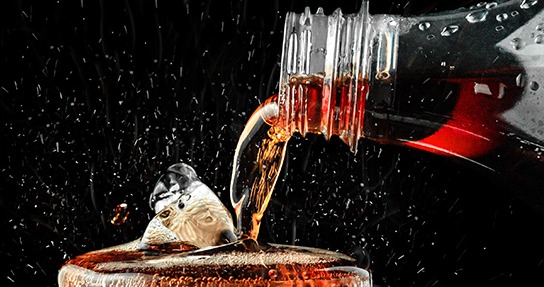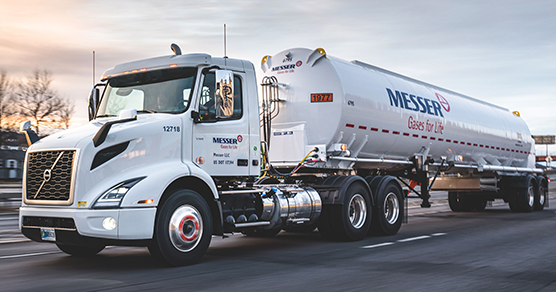Contact us. We're ready to help!
Thinner beverage container walls help reduce costs and limit environmental impact. However, reducing the weight of materials, like PET (polyethylene terephthalate) or aluminum, results in a weaker container wall. Weak bottle walls risk breaking underweight—a serious problem since drinks are often stored in large stacks.
Pressurization alleviates this issue. For carbonated beverages, internal pressure from CO2 helps keep the container stable. For non-carbonated beverages, liquid nitrogen (LIN) dosing provides an effective way to pressurize beverage containers without adding an undesired “bubbly” quality to products like tea, juice, or water.
Liquid nitrogen dosing is a process for pressurizing containers to improve their structural rigidity.
Liquid nitrogen expands to hundreds of times its liquid volume as it vaporizes into a gas, making it a highly effective pressurization medium. The dosing equipment injects a small drop of liquid nitrogen into each bottle or can just before it is sealed to pressurize the container.
Nitrogen is also inert, so this process can help reduce oxidation and may increase shelf-life and protect product quality.
Effective liquid nitrogen dosing enables more efficient container specification without sacrificing bottle or can strength or stack-ability. Messer works with beverage makers across North America to supply the beverage grade liquid nitrogen needed to achieve these benefits.
Messer can help keep you supplied with nitrogen (for LIN dosing and in gas form for undercover gassing), and our beverage team provides service and support than can help customers:

Gases that can help you improve efficiency and protect product quality across a variety of different applications in beverage production.
%20undercover%20gassing.jpeg?width=544&name=the-conveyor-belt-of-beer-cans-the-process-of-pouring-an-alcoholic-picture-id1287421285%20(9)%20undercover%20gassing.jpeg)
In the beverage industry, nitrogen can also be used in its gas form (either alone or mixed with CO2) to reduce oxidation through undercover gassing.

Pure N2 and LIN for your beverage production needs, delivered exactly how you need it.